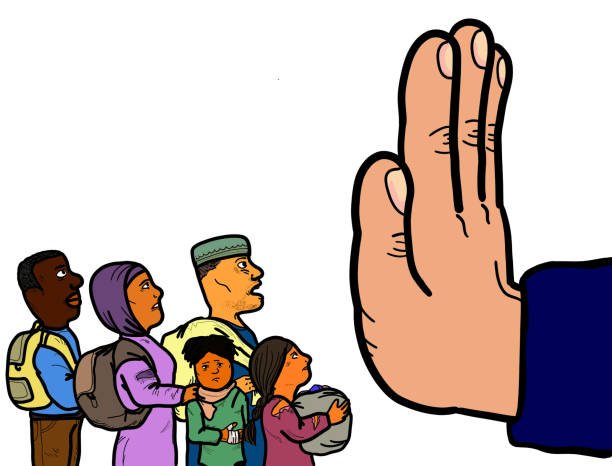Between Hospitality and Hesitation: Aceh's Rohingya Quandary

In rejecting Rohingya refugees, if you dare to call them that, Aceh proves that it is no longer the open and hospitable haven it once was—or at least, it falters in reviving its friendly reputation towards newcomers. Aceh has transformed into a closed-off domain, easily swayed by the whispers of its neighbors. Unbeknownst to its inhabitants, a subtle xenophobia infiltrates the very essence of that "noble" realm.
Long gone are the days when strangers arriving in Aceh were greeted with open arms. Yes, that was in the era of mighty kingdoms, long before contemporary nations took shape. Initially, Aceh welcomed the Rohingya. They washed ashore, and wherever they landed, aid was provided—food, drink, and temporary shelters were built. How magnanimous the people of Aceh were. However, as time passed, the Rohingya changed. The Arakanese culture clashed with 21st-century Acehnese ways—they were rough, voracious eaters, challenging to manage.
The community grew resentful as these "guests" seemed to overstep their bounds, asking for more than offered. Negative opinions circulated, particularly in the online realm. Social media influencers, feeling prominent and irritated by the Rohingya presence, disseminated narratives that portrayed them in a negative light. Followers echoed these negative tales, spreading them even to local coffee shops. Although there were positive narratives, especially from media not biased toward one side and reporting events without deep analysis, these pro-views sank quickly as hatred continued to swell.
Perhaps, Rohingya is another form of Middle Eastern immigrants fleeing to Europe due to the impacts of war. If we despise the Rohingya, we would likely rejoice if their boats reached European shores today. European facilities are more advanced, they have plenty of money, and dealing with the logistics of sheltering or making them citizens would surely be easier. Moreover, UNHCR's response would be better than in Aceh.
But Rohingya boats would likely sink if heading towards Europe—risking encounters with pirates, cartel interference, and other criminal activities. Hence, from the Arakan perspective, the waves of the Andaman Sea become the path to a new future.
Before becoming victims of human trafficking, these boat people probably faced persecution from civilians and the Myanmar military. When relentless terror becomes a daily ordeal, life loses its comfort. Fear, confusion, and courage intertwine. The best way out is to leave, hoping fate offers something better. So, they pay to board shoddy boats that might sink at any moment.
If we despise the Rohingya, we'd be pleased if those boats sank today. At least, they wouldn't end up here, consuming our rice and displaying the typical bad behavior of the Arakanese. Aceh would be fine without Rohingya because our issues are more pressing. There are still many poor people in Aceh. Furthermore, if we accept Rohingya, they might later demand citizenship and influence politics. This isn't Europe; we'll only be ready for Rohingya when Aceh is as advanced as Europe—maybe by 3045. By then, Aceh will prosper in all aspects. No more poverty, no more fear of running out of rice. However, at that time, the Rohingya ethnicity might no longer exist. They might have escaped the pursuit of radical Myanmar monks and built new lives in Europe, but most likely, many would have perished at sea because their boats were denied entry to the destination countries.
And in the future, we might plead with God in prayer to "strand" the Rohingya in Aceh once again. Because in 2023, we realize we missed the chance to care for fellow Muslims, a field of reward so immense. So, for now, our prayer is simple: "God, keep Rohingya away from Aceh. Save Aceh from Rohingya."